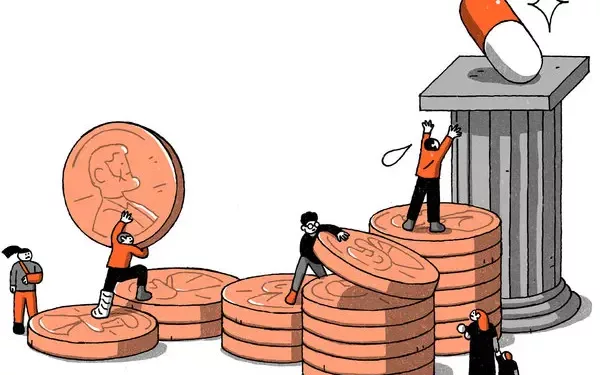The recent skyrocketing of drug prices in Nigeria is more than just an economic concern – it is a creeping public health crisis that demands urgent action from the government.
Over the past few months, the costs of vital medications have risen astronomically out of reach for average Nigerians. A single pack of common antibiotics now exceeds the national monthly minimum wage.
According to reports, the price of Beecham ampiclox has risen from N750 to N9,000 while Augumentin rose from N4,000 to 26,000. Also, Paracetamol rose from N40 to N150.
The price of a ventolin inhaler was N1,500 in July, but it is now sold for N8,000. Cefunat 500mg, which was sold for N2,800, rose to N4,200. Artesunate injection 120mg, which cost N1,050 in September, is now sold for N2,500. The 60mg injection was N900 during that period, but it is now N1,800. This is distressing.
In the considered opinion of this newspaper, this is untenable for the estimated 83 million Nigerians living in poverty who rely on essential medicines to manage chronic illnesses.
As more citizens ration pills or turn to dubious herbal alternatives, we move closer to the brink of a national healthcare disaster.
We recall that the National Agency for Food and Drugs Administration and Control (NAFDAC) recently warned people against taking unapproved herbs as an alternative to prescription and common over-the-counter drugs.
It is instructive to note that several complex factors converged to trigger this drug pricing crisis, but repatriating profits abroad has been particularly challenging for foreign drug-makers amid Nigeria’s ongoing foreign exchange crunch.
Last August, the British giant GSK announced they would cease Nigerian operations and shift to an import model after struggling to convert Naira revenues into dollars.
The subsequent market exit of a major supplier placed increased pressure on the Naira prices of imported medicines. Local drug production also remains extremely limited, with an estimated 70% of consumed pharmaceuticals imported.
Sadly, the free fall of the Naira against the dollar, rising logistics costs, and persistent double-digit inflation further compounded price spikes on imported drugs.
In the backdrop of this perfect storm, the most economically vulnerable Nigerians have been left adrift with shrinking access to potentially life-saving treatments.
The Tinubu administration cannot stand idly by – lives are now on the line unless policymakers take decisive action.
As a first step, the Central Bank needs to expedite its $7 billion backlog of outstanding foreign exchange orders to alleviate pressure on foreign exporters repatriating Naira profits.
Parallel policy efforts should provide targeted medical subsidies and price relief for crucial drug treatments that disproportionately impact the poor.
Simultaneously, the government should cultivate public-private partnerships and incentives to spur domestic pharmaceutical manufacturing and self-sufficiency.
Tax holidays, export subsidies, and research grants could help Nigeria escape the whims of foreign import reliance and fluctuating exchange rates.
Indeed, a thriving local drug industry can nurture high-skill biotech jobs, secure the drug supply chain, and make life-saving medicines more affordable through Naira pricing.
The world’s seventh most populous nation should not need to depend so heavily on outsourced medicines, but the solution requires long-term industrial planning.
In the interim, Nigerians need immediate protection from debilitating price hikes that could claim lives. As the Tinubu administration works behind the scenes on exchange rate reforms and local manufacturing incentives, publicly financing critical drug subsidies could provide a lifeline to vulnerable citizens.
The government’s policy response has so far proven underwhelming amid growing public outcry. Health Minister Ali Pate vaguely pledged his ministry “is working towards policy actions”, but words will not lower insulin costs nor calm public frustration.
This moment calls for direct and forceful policies that ease economic burdens while affirming healthcare as a fundamental human right for all Nigerians.
In our view, no citizen should ever be priced out of vital medical care.
Each price increase tips more Nigerians from consistent treatment toward medical poverty, substituting care with folk remedies in lieu of actual medicine.
In view of the foregoing, we strongly recommend that the government must meet this gathering emergency with fierce urgency through subsidised drug access schemes and expedited forex reforms.
The health of millions must not become bargaining chips for industries and exchange rates. Urgent relief today will light the path ahead. Tomorrow offers no guarantees for those who cannot afford tomorrow’s pills today.



